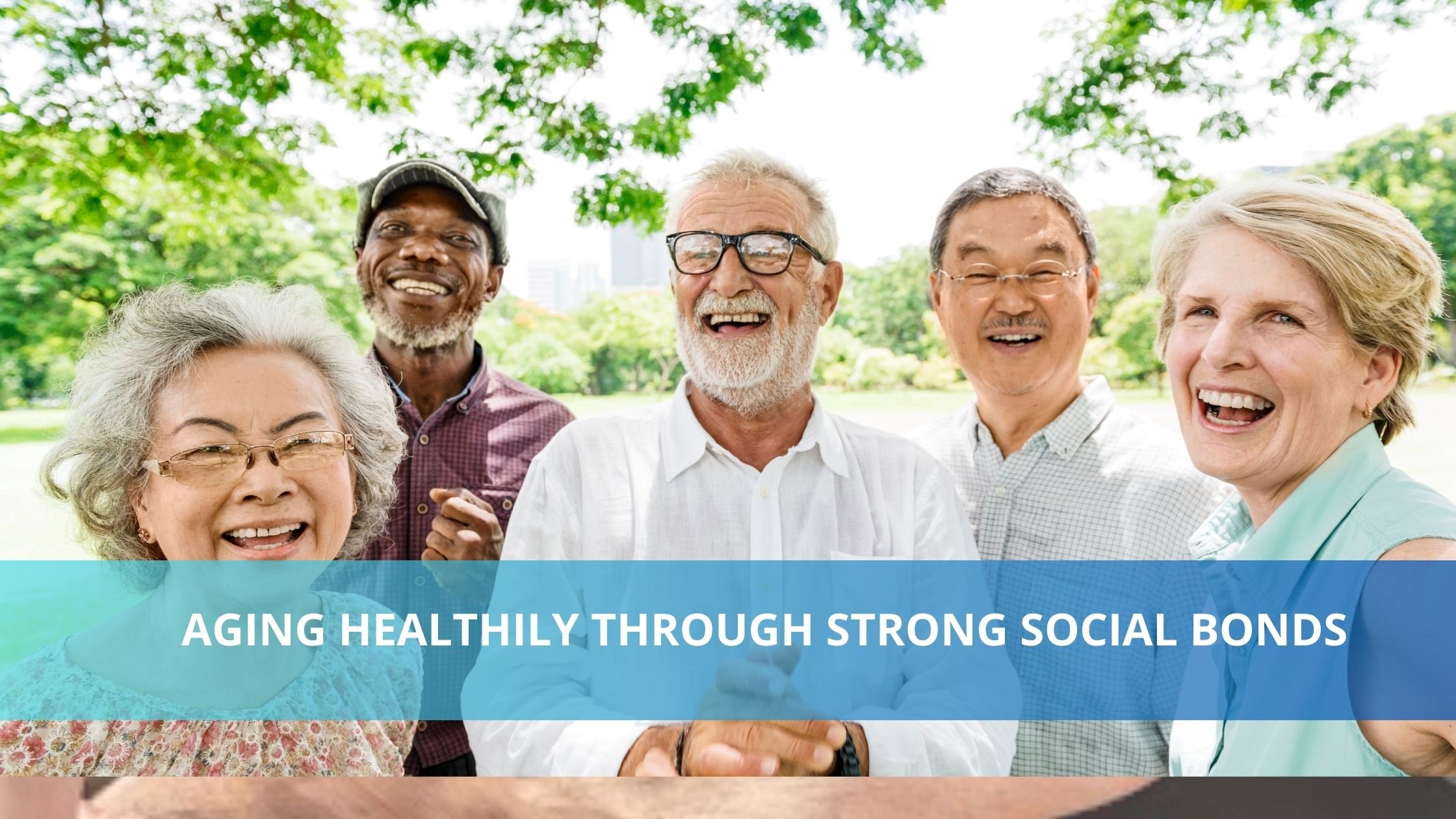
Chronicles
31 October 2024
Aging healthily through strong social bonds: the importance of relationships and support from helping-relationship therapists

Healthy aging isn’t just about eating well and staying physically active. In fact, social relationships are a cornerstone for maintaining good mental and emotional health, especially as we age. Studies show that older adults with strong social bonds not only live longer but also experience a greater sense of well-being in daily life. In this article, we’ll explore why social bonds are crucial to healthy aging and how helping-relationship therapists can play a valuable role by providing support and guidance during key life moments.
Why Are Social Bonds Essential for Healthy Aging?
Social connections go beyond mere presence. They nourish our minds, stimulate our emotions, and, in many cases, give meaning and purpose to our days. With age, life situations change—retirement, children moving out, loss of loved ones, and sometimes even moving to a senior residence. These changes can lead to feelings of isolation if social bonds weaken. However, isolation is a major risk factor for several health problems, including:
Depression and anxiety: Feeling cut off from others can lead to negative thoughts and loneliness, impacting mental health.
Cognitive decline: Social interactions stimulate the brain, keeping it sharp and reducing the risk of cognitive disorders.
Physical health issues: Strong social bonds help reduce stress and even strengthen the immune system, while isolation is linked to higher rates of hypertension and cardiovascular disease.
The Role of Helping-Relationship Therapists for Optimal Relational Health
During transitional or challenging times, maintaining social connections can become difficult for older adults. This is where helping-relationship professionals, such as therapists and life counselors, come in. These specialists are trained to support individuals through life’s journey, providing tools to maintain healthy relationships and navigate changes with peace of mind.
How Can These Professionals Help?
Providing a safe space for listening and expression: Talking to a professional about feelings and concerns is liberating and helps individuals understand their own needs. This support is essential for older adults going through significant transitions.
Encouraging openness to others: Therapists can help rediscover the joy of meeting new people and strengthening existing relationships, offering concrete advice on how to communicate better and maintain bonds.
Helping manage conflict and relational tensions: Sometimes, relationships with family or close ones can be tense, especially during times of change. Helping-relationship professionals can provide strategies to ease tensions and rebuild positive connections.
Providing moral and psychological support during difficult times: Grief, illness, and loss of independence are some of the challenges seniors may face. Having a trusted person who understands these difficulties and offers tailored support can make a big difference.
Encouraging beneficial social activities: Therapists can also guide seniors toward group activities, workshops, or social clubs to promote connections and prevent isolation.
Tips for Maintaining Strong Social Bonds
Participate in group activities: Whether it’s a book club, creative workshops, or adapted sports activities, these provide opportunities to meet people with shared interests.
Volunteer: Getting involved with local organizations is a way to help others while creating bonds and feeling useful.
Use technology to stay connected: Video calls, social networks, and messaging apps make it easy to stay in touch with family and friends, even from a distance.
Healthy aging doesn’t depend solely on physical factors; good relational health is just as crucial. Social bonds bring colour to our daily lives, and helping-relationship professionals are valuable resources for maintaining these bonds and navigating life’s challenges with peace of mind. Aging healthily means aging with the support and comfort of meaningful relationships. Don’t hesitate to reach out to these professionals for compassionate support and to enjoy a fulfilling, connection-rich aging experience.